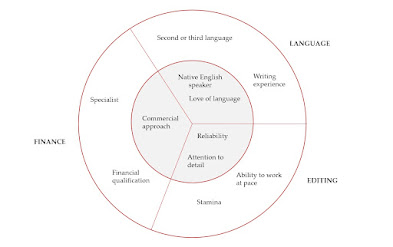Find Your Unhappy: Adjectives As Nouns
If your initial reaction to the first two sentences above is to think “Ugh”, you are in good company. They are offensive to the mind. “A new interactive what?” the brain protests.
Increasingly it seems, however, the adjective is the new noun. Things that describe things are now the things themselves. It is not a “blue something”, it’s just a “blue”.
But the last sentence does not offend. What was once an adjective has become a noun, but it is accepted. Why is this?
Usage leads to acceptance. Linguistic changes depend on usage to survive. Once a phrase is introduced by an innovator, someone else has to adopt it to give it life. The more widely a phrase is used, the stronger its roots in the vernacular. Over time, through constant use, the phrase becomes inoffensive. Adjectives have always become nouns; it’s just that the offensive ones above are new.
Changes to language like this can happen stealthily so that we don’t notice. One example is the phrase “thrown under a bus”, which is now common parlance, but Google Trends has no record of it in the UK from 2004-08. Examples of it appear in the FT and Times in the early 80s. However, it was only after the US presidential elections in 2008 that usage suddenly took off in the UK.
It can be hard to tell at what point a phrase or word is in common usage or if it may cross some invisible boundary of taste that hasn’t yet shifted to adopt the new wording.
Language, like culture or political leaning, is an integral part of our sense of self. New phrases can be offensive to that sense of self and create a barrier to effective communication. This is not because of the aesthetics of the phrase necessarily, but because the reader sees it as something alien.
When writing anything, particularly investment research, the readers are key. It is their ear that we are speaking into, their ear that may be put off by maladroit use of expressions. Getting this wrong may obscure the message you are trying to put across.
If a word or phrase interferes with effective delivery of the message, its position should be considered. A particular adjective may be fine to be used as a noun, but maybe not – it depends on the context. A good editor (or just a good?) can help you in this regard.
For more information visit: https://researcheditors.co.uk/




Comments
Post a Comment